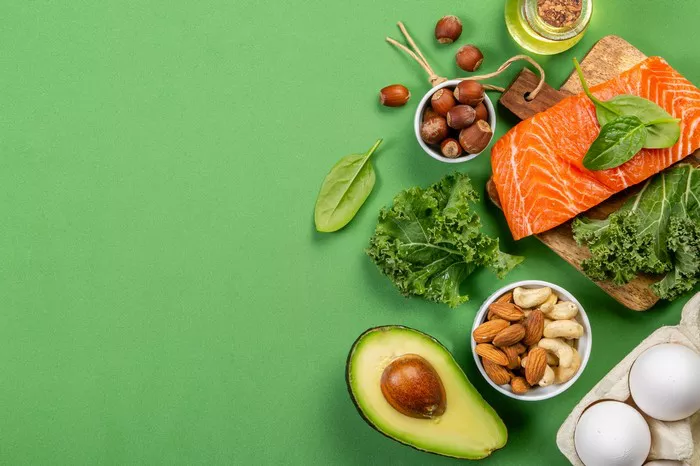When it comes to losing weight, the idea of achieving results without exercise might seem too good to be true. However, there are realistic and effective strategies to shed pounds by focusing on diet and lifestyle changes. This article explores practical approaches to weight loss without exercise, emphasizing realistic expectations, dietary focus, and simple lifestyle adjustments that can make a significant difference.
SEE ALSO: Why Is Fibre Important in a Healthy Diet?
Realistic Expectations
Losing weight without exercise is possible, but it’s important to set realistic expectations. Weight loss, even without physical activity, requires time, dedication, and effort. The key is to focus on sustainable changes that can be maintained over the long term. Crash diets or quick fixes may promise rapid results, but they often lead to disappointment and are typically unsustainable. Instead, aim for gradual weight loss, which is more likely to be permanent and healthier for your body.
Dietary Focus
The cornerstone of losing weight without exercise is managing your diet. Since exercise isn’t part of the equation, calorie control and healthy eating become even more critical. By consuming fewer calories than your body needs, you create a calorie deficit, which leads to weight loss. However, it’s essential to ensure that the calories you do consume come from nutritious, satisfying foods that support overall health.
Simple Diet Tips
Portion Control:
One of the easiest ways to reduce calorie intake is through portion control. Understanding serving sizes and using smaller plates can make a significant difference. For example, a smaller plate can make a modest portion of food appear larger, helping you feel satisfied with less. You can also use visual cues to estimate portions—think of a serving of meat as the size of a deck of cards or a serving of pasta as the size of your fist.
Smart Swaps:
Making healthier food swaps is another effective strategy. For instance, replace white bread with whole-grain bread, choose low-fat dairy products instead of full-fat versions, and swap sugary snacks for fruits or nuts. These changes may seem small, but they add up over time and can significantly reduce your overall calorie intake.
Hydration:
Staying hydrated is crucial for weight loss and can help control hunger. Often, thirst is mistaken for hunger, leading to unnecessary snacking. Drinking a glass of water before meals can also help you feel fuller, reducing the likelihood of overeating. Aim to drink at least eight glasses of water a day to stay hydrated and support your weight loss goals.
Mindful Eating:
Mindful eating involves paying attention to what and how you eat. Slow down during meals, savor each bite, and avoid distractions like watching TV or scrolling through your phone. This practice helps you recognize when you’re full, preventing overeating. Mindful eating also enhances your enjoyment of food, making smaller portions more satisfying.
Focus on Nutrient-Dense Foods
To lose weight effectively without exercise, focus on consuming nutrient-dense foods. These foods provide essential vitamins, minerals, and other nutrients with fewer calories. Prioritize whole foods such as fruits, vegetables, lean proteins, and whole grains. These foods are not only more filling but also support your overall health.
For example, a diet rich in fruits and vegetables provides fiber, which helps you feel full longer, reducing the temptation to snack between meals. Lean proteins, like chicken, fish, and tofu, are also filling and help maintain muscle mass, which is crucial for a healthy metabolism.
Avoid Fad Diets
It’s tempting to try fad diets that promise rapid weight loss, but these diets are often unsustainable and can be harmful to your health. Fad diets typically involve extreme restrictions that are difficult to maintain over the long term, leading to yo-yo dieting and potential nutrient deficiencies. Instead of falling for these quick fixes, focus on balanced, healthy eating habits that you can stick with for the long haul.
Lifestyle Adjustments
Sleep:
Getting enough sleep is essential for weight loss. Lack of sleep can disrupt hormones that regulate hunger, leading to increased cravings and overeating. Aim for 7-9 hours of quality sleep per night to help your body function optimally and support your weight loss efforts.
Stress Management:
Chronic stress can contribute to weight gain by increasing levels of the hormone cortisol, which can lead to cravings for high-calorie foods. Managing stress through activities like meditation, deep breathing exercises, or even hobbies you enjoy can help keep cortisol levels in check and prevent stress-related weight gain.
Hydration:
As mentioned earlier, staying hydrated is crucial. Drinking water not only helps control hunger but also supports digestion and metabolism. Make it a habit to drink water throughout the day, especially before meals.
Conclusion
Losing weight without exercise is possible by focusing on diet, making simple lifestyle adjustments, and setting realistic expectations. By prioritizing nutrient-dense foods, practicing portion control, staying hydrated, and managing stress and sleep, you can achieve your weight loss goals without the need for strenuous physical activity. Remember, consistency is key, and the healthiest weight loss plans are those that you can maintain over time.
Related Topics:


























